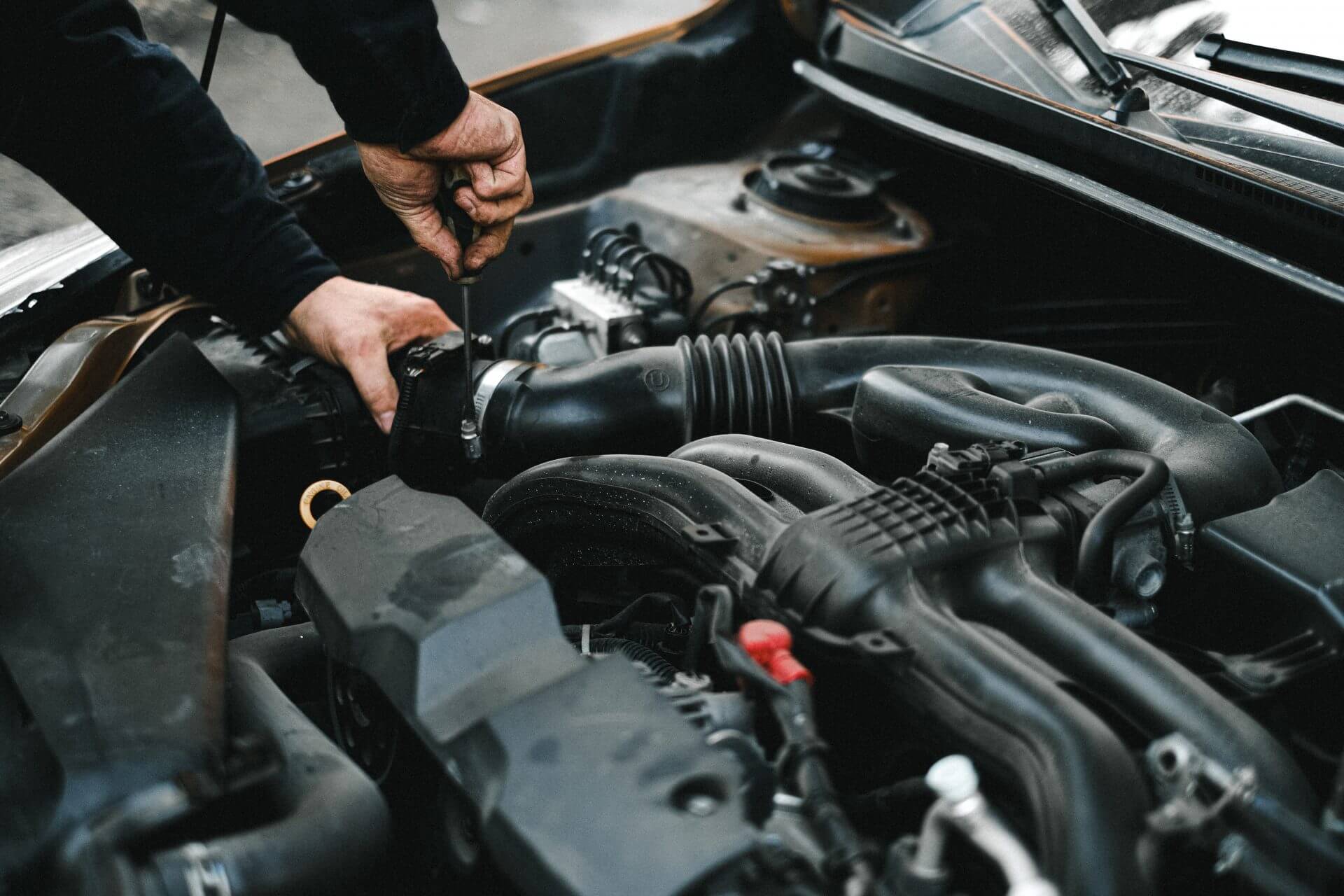Contents
How Much Does A Lambda Sensor or Oxygen Sensor Replacement Cost in the UK?
How much does it cost to replace a lambda sensor?
Signs your lambda sensor or oxygen sensor needs a replacement
How Much Does A Lambda Sensor or Oxygen Sensor Replacement Cost in the UK?
A lambda sensor is a type of oxygen sensor that is used to measure the amount of oxygen in a vehicle's exhaust gas. The sensor is used to help the engine adjust the air-fuel mixture so that it can run more efficiently. If the lambda sensor is not working properly, it can cause the engine to run lean or rich (it is receiving too much fuel and not enough oxygen), which can lead to poor fuel economy and expensive damage to the engine or catalytic converter.
How much does it cost to replace a lambda sensor?
The average cost of replacing a lambda sensor is £150, with prices ranging from £110 and £220. Sometimes a faulty lambda sensor when left unchecked can cause damage to other parts of the engine which may need to be fixed as well. The exact price of the lambda sensor replacement depends largely on your car and the parts recommended by the manufacturer.
Your location can also be a key factor in determining the price of an oxygen sensor replacement. For example, average hourly labour rates and demand in cities like London is around £50-£100 while in towns with lower demand, the labour rates can range from £35-£50. The type of mechanic, for example, a mobile mechanic vs a dealership garage technician can also affect the total cost of an oxygen sensor replacement.
To avoid having car owners overpaying and get a fair price for a lambda sensor replacement, we use real-time data of thousands of car makes and model data, local labour prices for lambda sensor replacements and part prices to provide an instant fair quote. Simply enter your vehicle registration number and postcode to get an instant price for a lambda or oxygen sensor replacement for your car.
Average cost of an oxygen sensor replacement by manufacturer
| Car Make | Average Cost |
|---|---|
| BMW | £260 |
| Citroen | £312 |
| Land Rover | £331 |
| Mercedes-Benz | £275 |
| Vauxhall | £368 |
| Volkswagen | £320 |
Signs your lambda sensor or oxygen sensor needs a replacement
- Check engine light on
- Engine misfiring
- Engine running rough
- Unusually high fuel consumption
- Increased emissions or emissions fail at MOT
- Difficulty starting the car
Your vehicle is running rough or misfiring
A bad lambda sensor can cause the vehicle to run rough or idle badly because it prevents the engine from running at its optimal air-fuel mixture. This can lead to a richer or leaner mixture, which can cause the engine to misfire and run roughly.
Your vehicle is experiencing decreased fuel economy and a rotten egg smell
A malfunctioning lambda sensor may negatively affect your fuel economy. If this is accompanied by a sulfuric or rotten egg smell in the car then it is likely the lambda sensor or the catalytic converter that is to blame.
Your vehicle is producing increased emissions
A faulty lambda sensor may cause increased emissions (which are basically unused or wasted hydrocarbons and carbon monoxide). This can also result in an MOT emission test failure.
Frequently asked questions about lambda sensor cost
Can you drive with a faulty lambda sensor?
Yes, technically a vehicle can be driven with a faulty lambda sensor, but it is important to remember that the efficiency of the engine diminishes as the air-fuel mixture is not at its optimum levels, causing increased fuel consumption and emissions. Continuing to drive with a faulty lambda sensor can cause damage to the catalytic converter by causing the engine to run too lean or too rich which can overheat the converter and damage the honeycomb structure inside.
Do I need to replace all the lambda sensors?
Not necessarily. Most cars have two oxygen sensors - one before the catalytic converter and one after. If one of the sensors has failed, it’s worth getting the other(s) checked which will need to be replaced if found to be faulty.
How long does a car oxygen sensor replacement take?
A car oxygen sensor replacement typically takes around 45 minutes to 1 hour. Ultimately, the time that the job will take will depend on a number of factors, like your vehicle's make and model, year, as well as other factors. Select your car at the top of this page for information on job time and cost for your vehicle through ClickMechanic.
Can I carry out an oxygen sensor replacement myself?
Many cars have two to four oxygen sensors and require a professional mechanic to diagnose, uninstall and replace these sensors properly. Unless you are a qualified mechanic with the required skills, training and equipment to do the job, we strongly recommend a car oxygen sensor replacement is only carried out by a trained mechanic.
ClickMechanic can help get you a vetted and local mechanic to carry out the work. Just enter your postcode and your car's registration number at the top of this page and select the work needed to get an instant fixed price upfront.
What else could be the problem if my lambda or oxygen sensor isn’t broken?
- Sensors - if the check engine light is on it could point towards any of the multiple sensors such as the TPS sensor in the vehicle. A mechanic will need to run a diagnostics test to determine the exact source of the issue
- Catalytic converter - if there are increased emissions and a “rotten egg” smell it could be caused by a faulty catalytic converter
- Clogged fuel filter or failing fuel pump - poor performance and reduced fuel efficiency can point towards issues with the fuel system.
- Faulty spark plugs or starter motor - if you find the engine is running rough or misfiring frequently, it could also be an issue with the ignition components.
What happens during an oxygen sensor replacement?
- The mechanic will read the ECU for possible fault codes related to the oxygen sensors.
- The mechanic will inspect the sensor and ancillaries (like the electrical connectors).
- If necessary, the mechanic will replace the sensor.
- The mechanic will advise if other components need to be replaced as well.
- The mechanic will check the sensors again.
- The mechanic will test drive the car, if necessary the mechanic will make adjustments.
Other cost guides we offer
Car Oxygen Sensor replacement models
Audi Lambda sensor replacement estimates
Cadillac Lambda sensor replacement estimates
Chrysler Lambda sensor replacement estimates
Citroen Lambda sensor replacement estimates
Dodge Lambda sensor replacement estimates
Fiat Lambda sensor replacement estimates
Ford Lambda sensor replacement estimates
Honda Lambda sensor replacement estimates
Hyundai Lambda sensor replacement estimates
Iveco Lambda sensor replacement estimates
Land Rover Lambda sensor replacement estimates
Mercedes-Benz Lambda sensor replacement estimates
MINI Lambda sensor replacement estimates
Mitsubishi Lambda sensor replacement estimates
Nissan Lambda sensor replacement estimates
Peugeot Lambda sensor replacement estimates
Porsche Lambda sensor replacement estimates
Renault Lambda sensor replacement estimates
Rover Lambda sensor replacement estimates
Suzuki Lambda sensor replacement estimates
Toyota Lambda sensor replacement estimates
Vauxhall Lambda sensor replacement estimates
Volkswagen Lambda sensor replacement estimates


